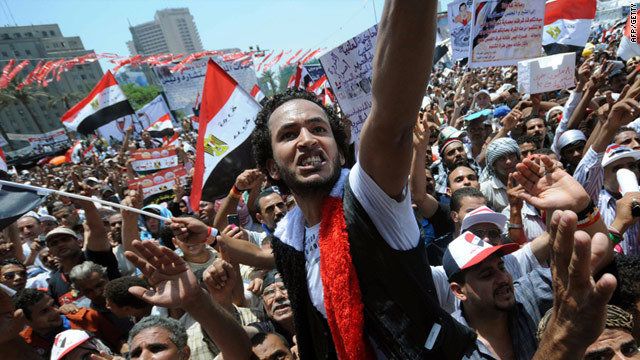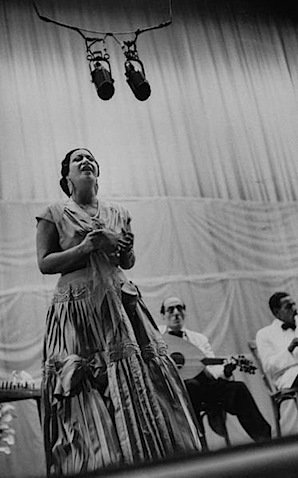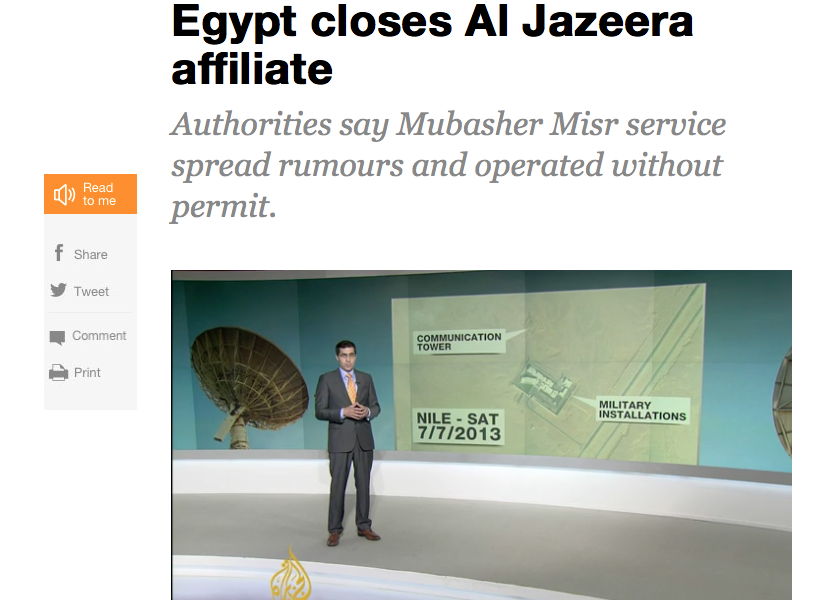five minute write-in
After reading today's piece, think about your own role/place within an American public sphere.
Ask yourself:
What are its rules?
what issues and concerns define this sphere?
how do you engage in it from Lewisburg?

Globalization and New Media
The current media landscape was made possible by technology, the spread of ideas, and international sources of funding

- 1990s-2000s civil society organizations active in laying political groundwork
- Civil Society: Research Institutes, political organizations, NGOs.
- Islamist political organizations effective in forms of counter organizing
- Islamic revival encouraged a culture of debate around a shared frame of reference and a questioning of the justness of society.
- Access to satellite TV
The Period before the Arab Spring
Benedict Anderson
Nation-states form in part by access to media that creates a shared sense of the past and current predicaments.
- News Papers
- Cafes
- political societies
Jurgen Habermas

Theorized an ideal public sphere where shared language, forms of address and reference points would found the basis of conversation.
- logical
- equality amongst participants
- dialogue without coercion
Habermas|Ideas critiqued because:
- failed to account for the diversity of the public sphere and therefore multiple forms of dialogue and address
- Habermas saw Newspapers as legitimate sources of information--reliant on literacy, not open to new forms of communication
Despite critiques, both Habermas and Anderson's work important for assessing the public sphere
In the Middle East it enters a century long conversation
- Who are we? What are the issues and histories that define us?
- individual nations or a pan-Arab identity
For Lynch: "I define the public sphere in terms of active arguments before an audience about issues of shared concern...participation is crucial." (pg.32)
Satellite precursor?
- Spread Pan Arab ideology and development of nationalist sentiment
- Used politically By Gamal Abdel Nasser
- Audience spanned the Arab world
- could access illiterate audiences and rural areas
- exact size of audience unclear, but it received up to 3,000 letters from listeners daily
Voice of the Arabs
Alahmed, A. 2011. "Voice of the Arabs Radio: Its Effects and Political Power during the Nasser Era (1953-1967)

Umm Kulthum on Voice of the Arabs
Public Sphere in the Middle East

The 'Arab Street'
- Use originated by Westerns but also used in regional discussions
-
widely seen as derogatory
- street metaphor paints Arabs as potential violent. Not capable of rational thought.
- denies Arab experience and history
"To summarize our results, we found that the term arab street is associated with volatility and irrationality, as revealed by the contexts of its use in the US written news media. we also found that the term arab street is the overwhelmingly predominant means of referring to Arab public opinion in the US media; by contrast, the literal and less freighted term Arab public opinion is surprisingly rare. Thus, the street metaphor carries negative connotations and is extremely widespread." --Regeier and Khalidi (2009)
Has Satellite television replaced Pan-Arabism?

- idealistic roots of Pan-Arabism stymied by authoritarianism
- Free to Air Transmission (FTA) allows anyone with equipment to listen to signal content without additional cost.
- Nilesat and Noorsat
- Toosheh (Iran)
Satellites connect a diasporic community to repressed others, emphasizing shared concerns amongst transnational locations.
- 12.5 Syrians living as refugees outside Syria
- 1.2-5 million Iraqis live outside Iraq
- 1% of Germany's population are Kurds
- Lebanese Americans make up a large portion of the estimated 3.7 million Arabs living in the United States
This public sphere should not be idealized!
- Middle East Broadcasting Center (MBC):Based in London, Owned by Saudi Sheikh Walid bin Ibrahim al-Ibrahim (Brother in Law of the King)
- Future TV: Lebanese, owned in part by Rafik Hariri
- Lebanese Broadcasting Corporation (LBC): Lebanese, owned by government officials
- Al Jazeera: Qatar, founded by Sheikh Hamid bin Khalifa al Thani. Officially independent.
- Al- Hurra: Virginia, American backed.
The spread of Arab media linked to desire for larger commercial shares and political influence



Egypt vs. Al Jazeera
Before the Arab Spring, satellite tv open the ability to
- debate 'publicly' and confidently amongst region inhabitants
- debate with relatively less fear of government retribution
- callers could belong to any class or education level
- Station could immediately show protests in one area to others in the region
- stimulated a collective sense of awareness
- reliance on polling illuminates political trends
However
- Satellite stations still have ties to governments
- prone to illicit extreme views for ratings and populist sentiments (against Habermasian ideals)
- news coverage bias and limited to particular issues.
- Potential to directly impact policy questionable.
Al Jazeera's success due in large part to its focus on issues ignored by states:
- Palestine
- Iraq
- Political Reform
deck
By cesmit5
deck
- 790



